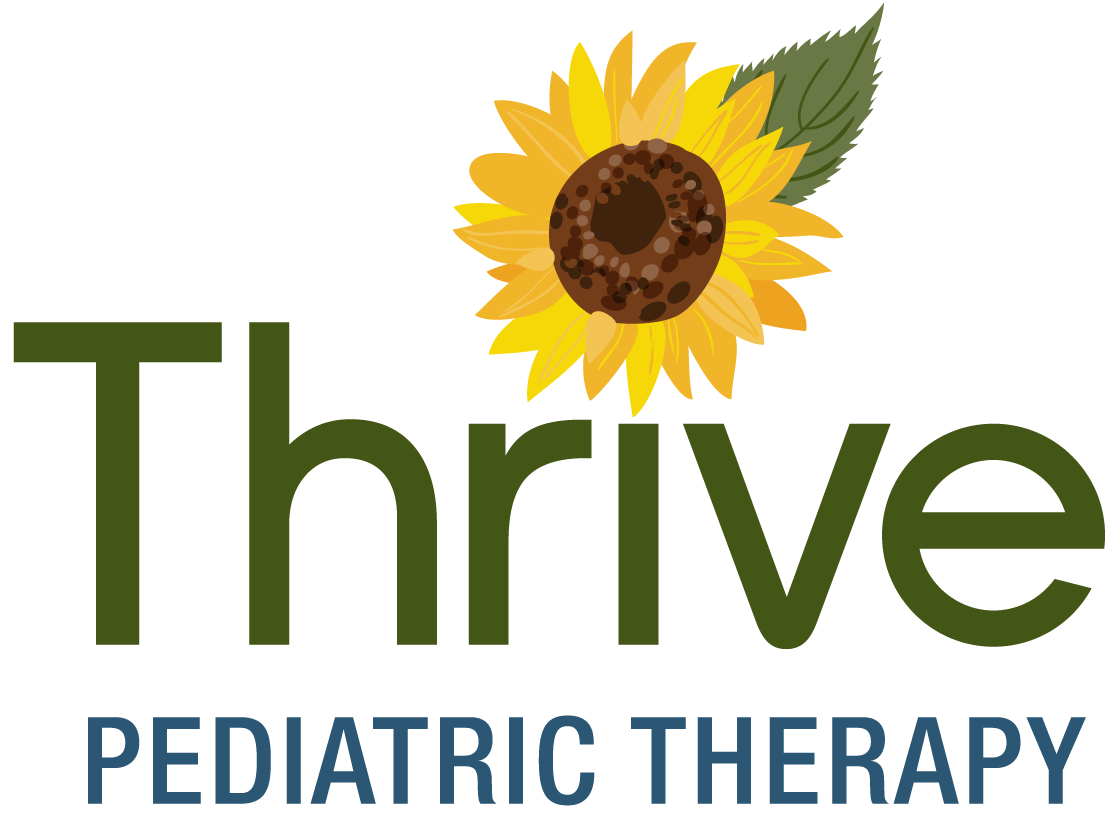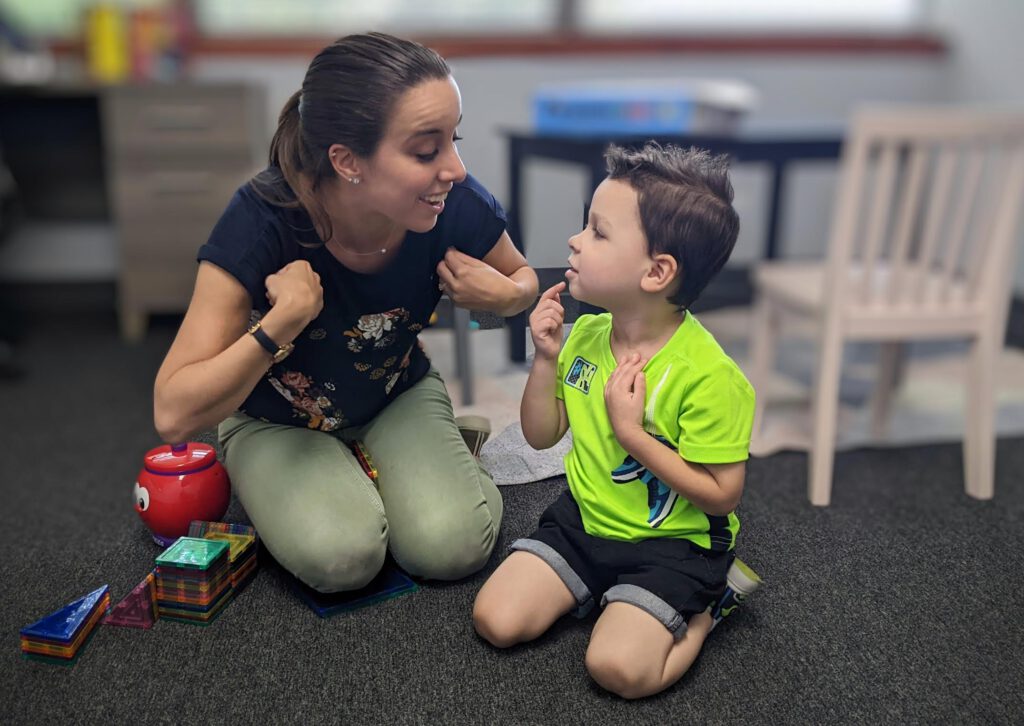Your child’s speech and language therapy sessions will be centered around the goals outlined in the treatment plan created by your speech-language pathologist (SLP). The relationship between your child and the SLP is crucial to your child’s success in speech and language therapy. For this reason, the SLP will take the beginning of your child’s first few sessions to get to know your child, including their likes and dislikes, favorite games and activities, and any supports they may need to fully participate in their sessions. Not only will this help to build your child’s relationship with the SLP, it will also aid the SLP in selecting appropriate toys, games, and materials for therapy sessions.
At Thrive Pediatric Therapy, we understand that play is a necessary part of a child’s development and that children learn best through play. For this reason, our speech and language therapy sessions are centered around play. During therapy sessions, the SLP will create opportunities for your child to practice their targeted skills while engaging in toys and games that are fun and of interest to your child. For example, a car ramp with toy cars can be used to target a variety of speech and language goals. If your child is working on their production of the /k/ and /g/ sounds, the SLP may address the words car, go, gas, give, and key during their speech therapy session. To address your child’s use of two-word utterances, the SLP will support your child’s use of phrases that are relevant to the activity, such as “go down,” “more car,” “give me,” and “my car.” Adjectives can be addressed during this activity as well, using descriptive words such as fast, slow, big, and small. The possibilities are endless!
Parents and caregivers are always welcome to remain in the treatment room during their child’s speech and language therapy sessions. For children under the age of three, parents/caregivers are encouraged to be active participants in their child’s therapy sessions. As the SLP models various therapy techniques, parents/caregivers can practice these techniques alongside the SLP so that they can gain confidence applying these same techniques to the home environment. For older children, parents/caregivers are encouraged to watch their child’s therapy sessions so that they understand their child’s treatment goals and the ways in which they can support their child’s progress outside of the therapy room. The SLP educates parents/caregivers during and after speech therapy sessions regarding their child’s progress and strategies for carryover.
Do you have more questions about our speech and language therapy sessions? Feel free to visit our Frequently Asked Questions page.

